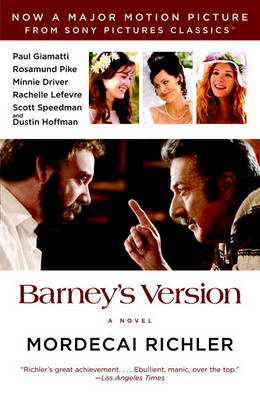Reviewed by clementine on
I think part of my strong attachment to the character of Barney is that he reminds me so much of my late grandfather, who grew up at the same time in the same place. (Though my grandpa was a local celebrity and likely shared mutual acquaintances with Richler, they never ran in the same circles despite both being Montrealers born in 1931!) Cantankerous, prone to exaggeration, not entirely politically correct - everything about that is shades of my grandpa, though he was only married once and was definitely never accused of murder.
That aside, I think this novel is an exemplar of the unreliable narrator trope. Richler expertly puts Barney's credibility into dispute, from the framing of the narrative as an autobiography written in response to damning allegations from a long-time enemy to Barney's son's footnotes containing nitpicky factual corrections to Barney's memory loss being built into his narration. We never really know if his self-defense is accurate - and if it's not, is that deliberate, or is it because of his increasingly addled brain? Regardless, even if Barney is innocent of the allegations, he's still a hedonistic misanthrope, which propels this hilarious narrative.
Barney is a fantastic character, classic Richler. He's cranky, cynical, and kind of a terrible person, but he's also full of the most raw, tender, painful love for his third wife, Miriam, and genuine regret for how he has wronged her. His relationships with his children are difficult, but it's clear that his love is real. Barney is over-the-top in his flaws and awful behaviour, but there is something very vulnerable about him - particularly in old age - which makes him seem real.
Richler's writing is, as always, incisive and precise, every word perfectly-chosen. I think the writing and characters alone are enough to make this book appealing regardless of nationality, but there is so much that I think makes it especially delightful as a Canadian. A lot of CanLit wouldn't necessarily go over the heads of international audiences, but Richler is so precise in his rendering of the Montreal, Quebec, and broader Canadian sociopolitical climate that it feels particularly special and wonderful to read it as a Canadian (with a connection to Montreal, no less). Anyway, even if you won't get all the Canadian humour out of this one, it's still worth a read.
Reading updates
- Started reading
- 6 July, 2019: Finished reading
- 6 July, 2019: Reviewed
